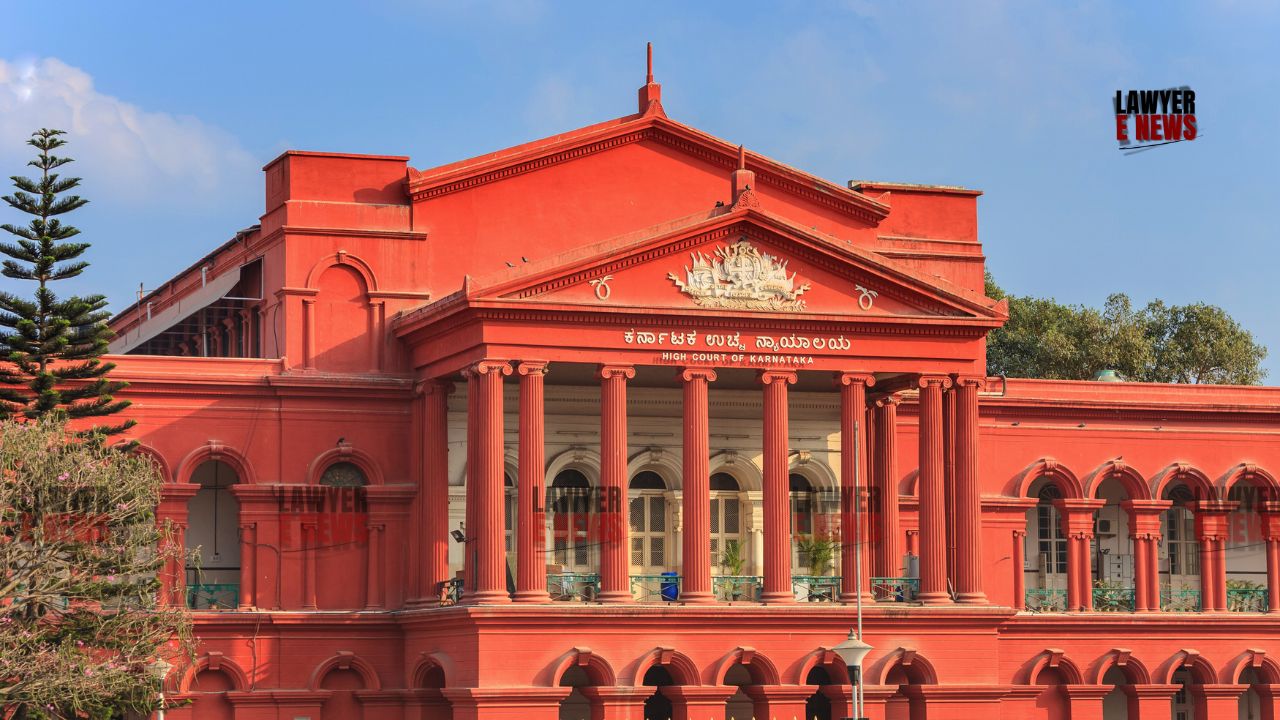-
by Admin
15 February 2026 5:35 AM



Civil Suit for Recovery Does Not Bar Criminal Proceedings under Section 138 of the NI Act - Karnataka High Court dismissed a petition filed by Sri Lalji Kesha Vaid in Sri Lalji Kesha Vaid vs. Sri Dayanand R. (Criminal Petition No. 331 of 2022), seeking to quash criminal proceedings initiated under Section 138 of the Negotiable Instruments Act, 1881, on the grounds that a civil suit for recovery of the same amount was already pending. The court, presided over by Justice M. Nagaprasanna, held that the pendency of a civil suit does not bar the continuation of criminal proceedings for dishonor of a cheque, as both serve distinct purposes.
The petitioner and respondent had a long-standing business relationship, where the petitioner issued a blank cheque to the respondent in 2018 for ₹5,00,000, which the respondent claimed was payment for goods supplied. According to the respondent, the petitioner failed to repay the amount, prompting him to file both a civil suit (O.S.No. 3210 of 2020) for recovery of ₹35,00,000 and a criminal complaint for dishonor of a cheque under Section 138 of the Negotiable Instruments Act.
The petitioner, after receiving summons for the criminal complaint in C.C.No. 8737 of 2020, sought to quash the proceedings under Section 482 of the Code of Criminal Procedure, 1973, arguing that the ongoing civil suit barred the initiation of criminal proceedings for the same matter.
Maintainability of Simultaneous Civil and Criminal Proceedings
The central issue in this case was whether criminal proceedings under Section 138 of the NI Act could continue while a civil suit for recovery of the same debt was pending. The petitioner argued that since the respondent had already sought recovery through a civil suit, criminal proceedings would amount to an abuse of process.
However, the court rejected this argument, holding that civil and criminal proceedings can run concurrently, as they serve different legal purposes. The court cited the Supreme Court’s ruling in D. Purushotama Reddy v. K. Sateesh (2008), where it was held that a civil suit for recovery and a criminal complaint under Section 138 of the NI Act are maintainable simultaneously. The court noted, "A suit for recovery of money due from a borrower is maintainable at the instance of the creditor, and a complaint under Section 138 of the Act would also be maintainable."
The court emphasized the distinction between civil and criminal proceedings, pointing out that a civil suit aims to recover the monetary amount owed, while a criminal complaint under Section 138 of the NI Act addresses the dishonor of a cheque, which is a punishable offense. The court observed, "The purpose of a criminal complaint under Section 138 is to ensure that cheques issued in discharge of liability are honored. Failure to do so constitutes a penal offense, irrespective of the pendency of any civil proceedings."
The court relied on several judgments to support its position. In K.G. Premshanker v. Inspector of Police (2002), the Supreme Court clarified that a criminal court's judgment does not bind civil courts and vice versa, and that both types of proceedings can continue independently. The Karnataka High Court also referred to its own decision in Cref Finance Limited v. Sree Shanthi Homes Private Limited (2013), which reiterated that both a civil suit and a criminal complaint under Section 138 for the same cause of action can be maintained simultaneously.
The petitioner cited multiple Supreme Court judgments, including Shanku Concretes Pvt. Ltd. v. State of Gujarat (2000) and M. Suresh v. State of Andhra Pradesh (2018), arguing that the civil suit should take precedence, and the criminal complaint should be quashed. However, the court distinguished these cases, noting that they dealt with purely civil matters, where criminal law could not be invoked to settle what was essentially a civil dispute. In contrast, dishonor of a cheque is a criminal offense, and the existence of a civil suit does not negate criminal liability.
Petition Dismissed, Criminal Proceedings to Continue
The Karnataka High Court dismissed the petition, allowing the criminal proceedings under Section 138 of the Negotiable Instruments Act to continue despite the pending civil suit. The court emphasized that both remedies—civil and criminal—are available to the aggrieved party and can be pursued concurrently.
The decision underscores the principle that criminal proceedings for cheque dishonor serve a distinct purpose from civil recovery suits, and the two processes do not conflict with one another. As Justice M. Nagaprasanna noted, "There is no legal bar on continuing criminal proceedings for dishonor of a cheque merely because a civil suit for recovery of the amount is pending."
Date of Decision: October 21, 2024
Sri Lalji Kesha Vaid vs. Sri Dayanand R.
